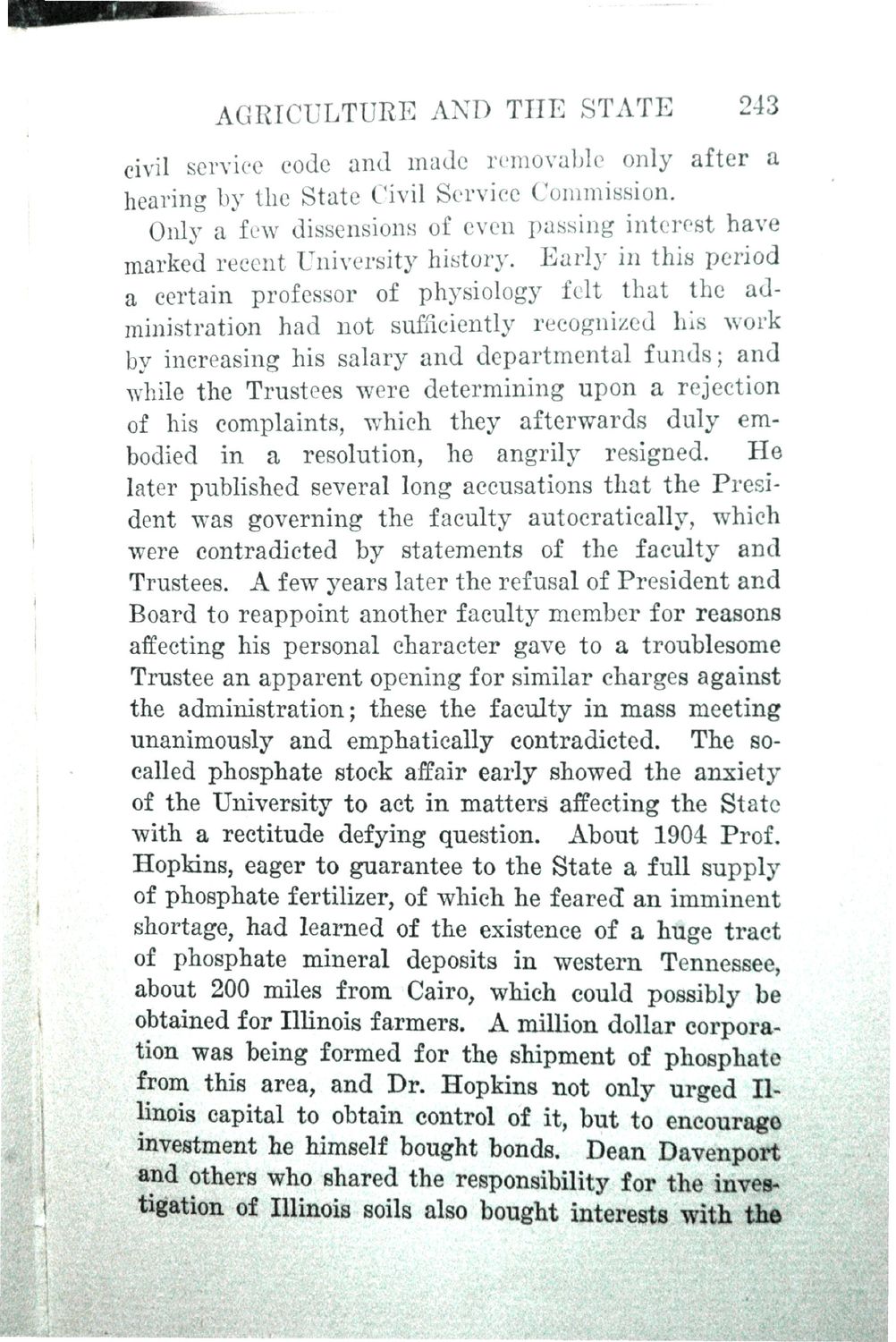| |
| |
Caption: Book - History of the University (Nevins)
This is a reduced-resolution page image for fast online browsing.

EXTRACTED TEXT FROM PAGE:
AGRICULTURE AND THE STATE 248 civil service code and made removable only after a hearing by the State Civil Service Commission. Only a few dissensions of even passing interest have marked recent University history. Early in this period a certain professor of physiology felt that the administration had not sufficiently recognized his work by increasing his salary and departmental funds; and while the Trustees were determining upon a rejection of his complaints, which they afterwards duly embodied in a resolution, he angrily resigned. He later published several long accusations that the President was governing the faculty autocratically, which were contradicted by statements of the faculty and Trustees. A few years later the refusal of President and Board to reappoint another faculty member for reasons affecting his personal character gave to a troublesome Trustee an apparent opening for similar charges against the administration; these the faculty in mass meeting unanimously and emphatically contradicted. The socalled phosphate stock affair early showed the anxiety of the University to act in matters affecting the State with a rectitude defying question. About 1904 Prof. Hopkins, eager to guarantee to the State a full supply of phosphate fertilizer, of which he feared an imminent shortage, had learned of the existence of a htige tract of phosphate mineral deposits in western Tennessee, about 200 miles from Cairo, which could possibly be obtained for Illinois farmers. A million dollar corporation was being formed for the shipment of phosphate from this area, and Dr. Hopkins not only urged Illinois capital to obtain control of it, but to encourage investment he himself bought bonds. Dean Davenport and others who shared the responsibility for the investigation of Illinois soils also bought interests wita the
| |